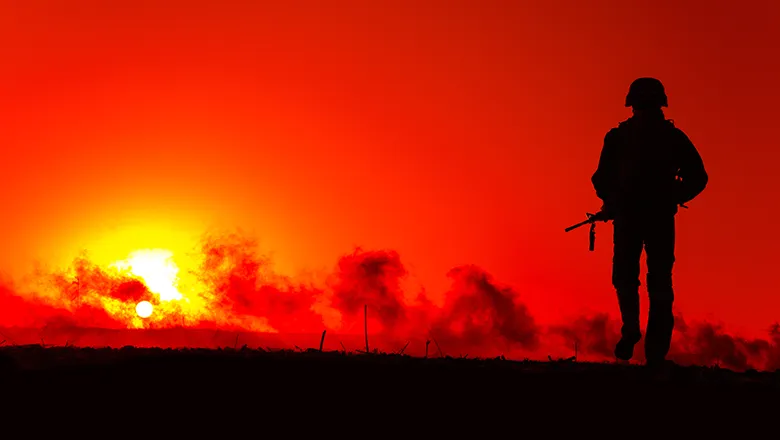I do not foresee any decisive victory for Russia either on the battlefield, at least for now, I think they will be trying to grind the Ukrainian forces down very slowly at the expense of not expanding their control of the territory to see how far the Western countries are willing to go.
Dr Marina Miron
22 February 2024
What do current conflicts tell us about the world today and our prospects for peace?
A new podcast episode discusses some of the major conflicts taking place around the world today and explores whether peaceful resolutions are possible.

The latest episode of the WORLD: we got this podcast series, looks at some of the wars currently taking place around the world and whether we are in a time of increased conflict.
Featuring Dr Marina Miron, a postdoctoral researcher in the Department of War Studies, the episode also explores the role of NATO and what could be done differently if we want a more peaceful future.
The episode, released around the second anniversary of the invasion of Ukraine, assesses the current situation for Ukraine and Russia. Dr Miron warns it was a mistake to think that Russia’s initial poor military performance would continue, and she points out that Russia has adapted strategically.
At the same time, Western countries are showing there are limits to their resources and patience, plus there are cracks appearing in the Ukrainian political system. She says Russia has been waiting for the West to lose its political will and she thinks there will be pressure placed on the Ukrainian government by Western policymakers to try to find a resolution.
She also discusses the current fighting in Gaza. She says Israel wants to liberate hostages and destroy Hamas –two different aims which show a “divorce” between its military and political aims.
She says there is no clarity around what will happen with Gaza, who will pay reparations for the damage caused and who will be in charge if Hamas’ capabilities are destroyed. She warns there is a risk of a power vacuum which small factions or others in the region could seek to exploit.
She believes the reputation of the United Nations has been damaged, so it will fall to others to try to bring about a resolution.
I think Middle Eastern players such as Qatar, Saudi Arabia and the UAE will have to step up their game in order to try and resolve the crisis because it is in their backyard and they are perceived differently from those who come from the outside and try to get involved.
Dr Marina Miron
Dr Miron also explores the current attacks on ships in the Red Sea by Houthi rebels, pointing out their links to Iran. She says if the West intervenes militarily, that could risk greater spillover as disparate groups might unite against the West as their "common enemy" so she does not think policymakers will commit to greater military involvement to try to resolve this situation.
In the episode, she also discusses the role of NATO with its current focus on defending its eastern flank. She does not think Russia will necessarily attack a NATO member but might instead favour other tactics, such as cyber operations or using its intelligence services.
On ways to secure a more peaceful future, she suggests the US, UK and other Western countries should engage in a closer dialogue with Middle Eastern power brokers to try to resolve the situation rather than try and use military force.
I think that we should put more emphasis on cooperation and public diplomacy. I do think that the military instrument is very blunt and it can have far reaching consequences. I think sometimes we also need to learn to talk to actors we don't necessarily like.
Dr Marina Miron

